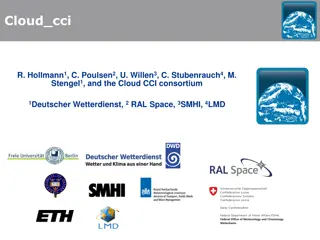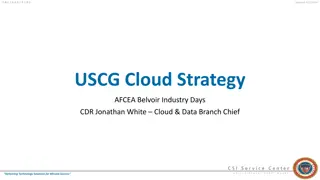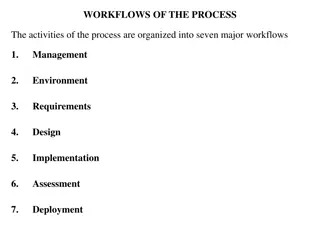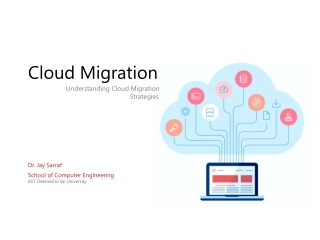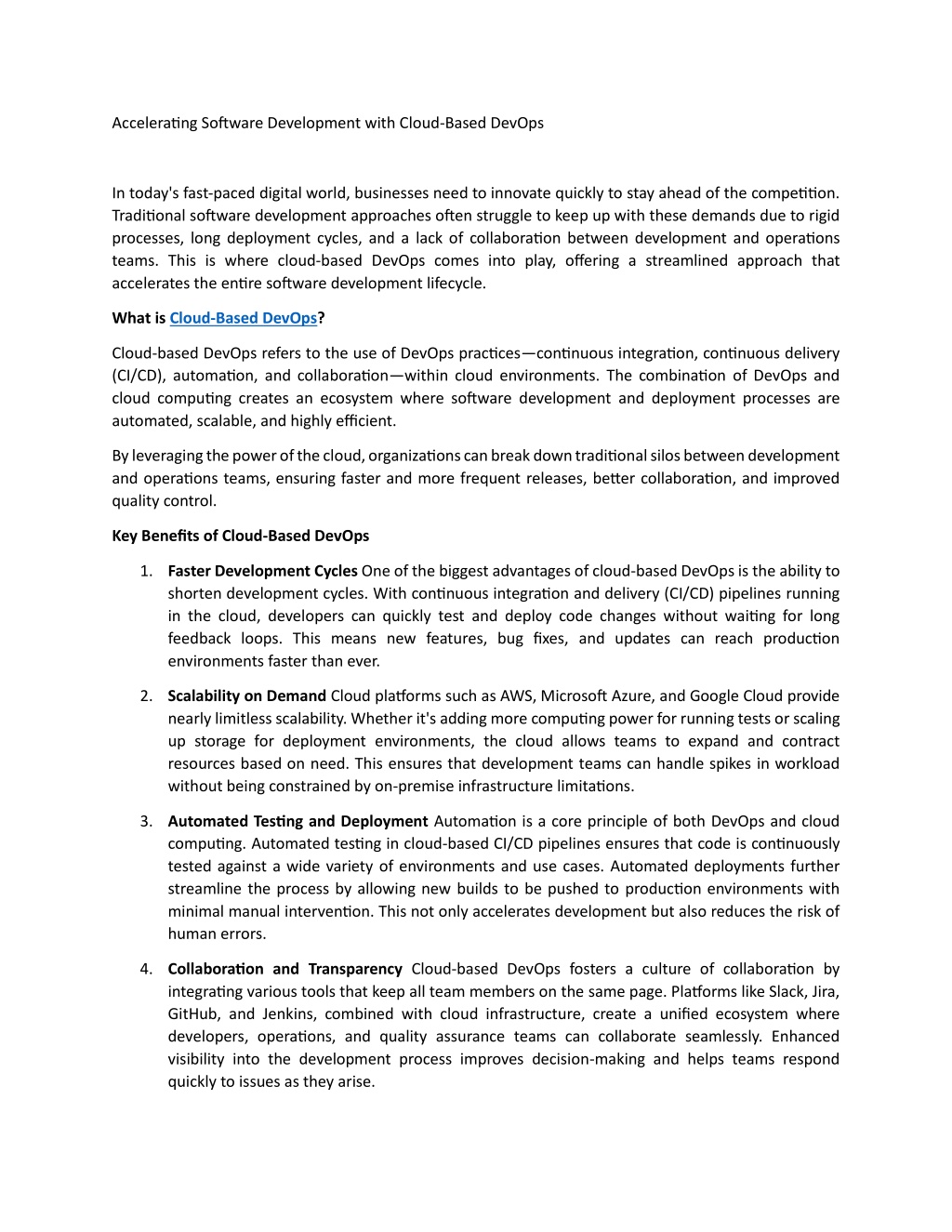
Accelerating Software Development with Cloud-Based DevOps
In todayu2019s fast-paced tech world, startups are constantly under pressure to deliver products quickly, efficiently, and with limited resources. One of the most effective methodologies to achieve this is Agile software development.
Download Presentation

Please find below an Image/Link to download the presentation.
The content on the website is provided AS IS for your information and personal use only. It may not be sold, licensed, or shared on other websites without obtaining consent from the author. Download presentation by click this link. If you encounter any issues during the download, it is possible that the publisher has removed the file from their server.
E N D
Presentation Transcript
Accelerating Software Development with Cloud-Based DevOps In today's fast-paced digital world, businesses need to innovate quickly to stay ahead of the competition. Traditional software development approaches often struggle to keep up with these demands due to rigid processes, long deployment cycles, and a lack of collaboration between development and operations teams. This is where cloud-based DevOps comes into play, offering a streamlined approach that accelerates the entire software development lifecycle. What is Cloud-Based DevOps? Cloud-based DevOps refers to the use of DevOps practices continuous integration, continuous delivery (CI/CD), automation, and collaboration within cloud environments. The combination of DevOps and cloud computing creates an ecosystem where software development and deployment processes are automated, scalable, and highly efficient. By leveraging the power of the cloud, organizations can break down traditional silos between development and operations teams, ensuring faster and more frequent releases, better collaboration, and improved quality control. Key Benefits of Cloud-Based DevOps 1.Faster Development Cycles One of the biggest advantages of cloud-based DevOps is the ability to shorten development cycles. With continuous integration and delivery (CI/CD) pipelines running in the cloud, developers can quickly test and deploy code changes without waiting for long feedback loops. This means new features, bug fixes, and updates can reach production environments faster than ever. 2.Scalability on Demand Cloud platforms such as AWS, Microsoft Azure, and Google Cloud provide nearly limitless scalability. Whether it's adding more computing power for running tests or scaling up storage for deployment environments, the cloud allows teams to expand and contract resources based on need. This ensures that development teams can handle spikes in workload without being constrained by on-premise infrastructure limitations. 3.Automated Testing and Deployment Automation is a core principle of both DevOps and cloud computing. Automated testing in cloud-based CI/CD pipelines ensures that code is continuously tested against a wide variety of environments and use cases. Automated deployments further streamline the process by allowing new builds to be pushed to production environments with minimal manual intervention. This not only accelerates development but also reduces the risk of human errors. 4.Collaboration and Transparency Cloud-based DevOps fosters a culture of collaboration by integrating various tools that keep all team members on the same page. Platforms like Slack, Jira, GitHub, and Jenkins, combined with cloud infrastructure, create a unified ecosystem where developers, operations, and quality assurance teams can collaborate seamlessly. Enhanced visibility into the development process improves decision-making and helps teams respond quickly to issues as they arise.
5.Cost Efficiency By adopting cloud-based DevOps, organizations can reduce the overhead of maintaining physical servers and infrastructure. With a pay-as-you-go pricing model, businesses can save on upfront hardware costs and pay only for the resources they use. Additionally, the ability to automate resource allocation means that teams can efficiently manage costs by optimizing their cloud infrastructure for development and production environments. How Cloud-Based DevOps Accelerates Development 1.Continuous Integration and Continuous Delivery (CI/CD) CI/CD pipelines in the cloud allow development teams to automate the testing, building, and deployment of applications. This ensures faster releases and reduces the chances of bugs or errors slipping into production environments. 2.Infrastructure as Code (IaC) Cloud platforms enable developers to define and manage infrastructure through code. This allows teams to quickly provision and configure resources on demand, making it easier to replicate development, testing, and production environments. The consistency brought by IaC ensures fewer errors caused by misconfigurations and speeds up development processes. 3.Microservices and Containers Cloud environments are well-suited for microservices and containerized applications. Tools like Kubernetes and Docker allow developers to break down applications into smaller, independently deployable services. This makes it easier to update individual components without impacting the entire system, speeding up development and reducing downtime. Conclusion Cloud-based DevOps is revolutionizing software development by enabling faster, more efficient workflows. Through automation, scalability, and improved collaboration, organizations can accelerate their development cycles and deliver higher-quality software in less time. By leveraging cloud technologies in tandem with DevOps practices, businesses are better equipped to innovate, compete, and meet the demands of today's dynamic markets. Read More: https://techhorizonsolutions.blogspot.com/2024/09/accelerating-software-development- with.html




